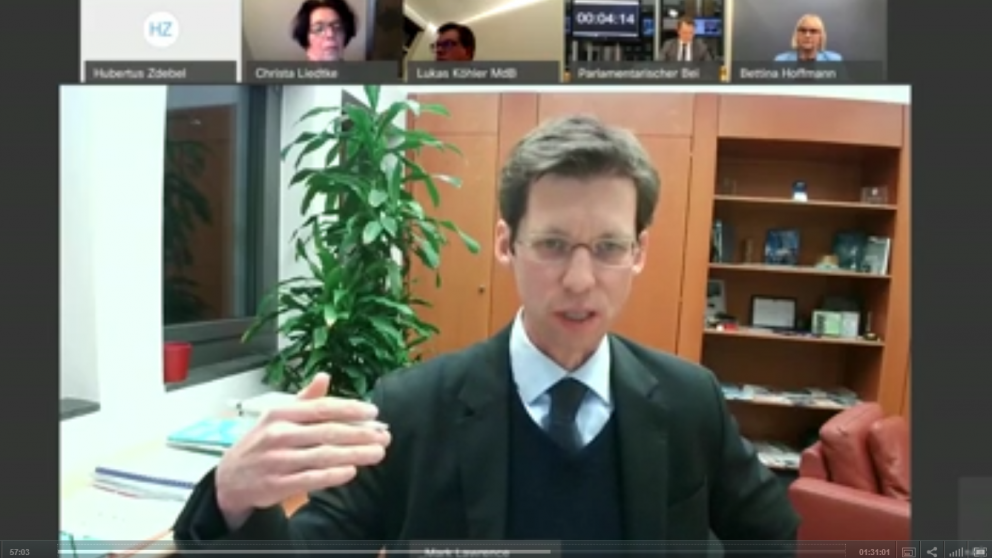Dialogue with Parliamentary Advisory Council on Sustainable Development
16.02.2021
Sharing knowledge and experience, collaboration, and coordinated action across politics, science, and society are vital to foster sustainable development and deliver on the goals of the German Sustainable Development Strategy. An online dialogue conducted on 10 February 2021 brought together experts from the Parliamentary Advisory Council on Sustainable Development and the co-chairs of Science Platform Sustainability 2030 (wpn2030) Christa Liedtke (Wuppertal Institute) and Mark Lawrence (IASS). The Advisory Council and wpn2030 are two central elements in the architecture of the German Sustainable Development Strategy. The dialogue between these two organizations and other actors is to be continued in the future.

Christa Liedkte emphasized the need to expand the role of scientific policy advice as an instrument for the further development of the German Sustainable Development Strategy. She also pointed to the importance of strengthening both acceptance and incentive systems within the science system for advisory activities. "Science and politics must engage in inter- and transdisciplinary exchange and work together. This requires the development of formats to facilitate effective exchange," Liedtke suggested. Liedtke also noted the need to monitor cooperation across science and policy. Coherent planning and concerted action are crucial to efforts to strengthen sustainability policy and the German Sustainable Development Strategy in particular. In their absence, there is a risk that the credibility of sustainability policy will be diminished. To this end, indicators to track progress on the implementation of the Sustainable Development Strategy must be developed further.
Mark Lawrence emphasized the importance of co-creative approaches, in particular as a means to address conflicting goals, a challenge that was noted by several parliamentarians. In order to make societies more resilient and sustainable, it is important to "bring conflicting goals into the foreground rather than concealing them", said Lawrence. To achieve this, scientific policy advice must employ best practices that lay the groundwork for targeted solutions such as improving the transparency of the evaluation criteria used in the development of scientific policy advice. In addition, transdisciplinary exchange should be supplemented by intergenerational dialogue, as both youth and future generations are especially affected by present-day decision-making and their interactions with science should be strengthened to reflect this.
Link: Video (in German)